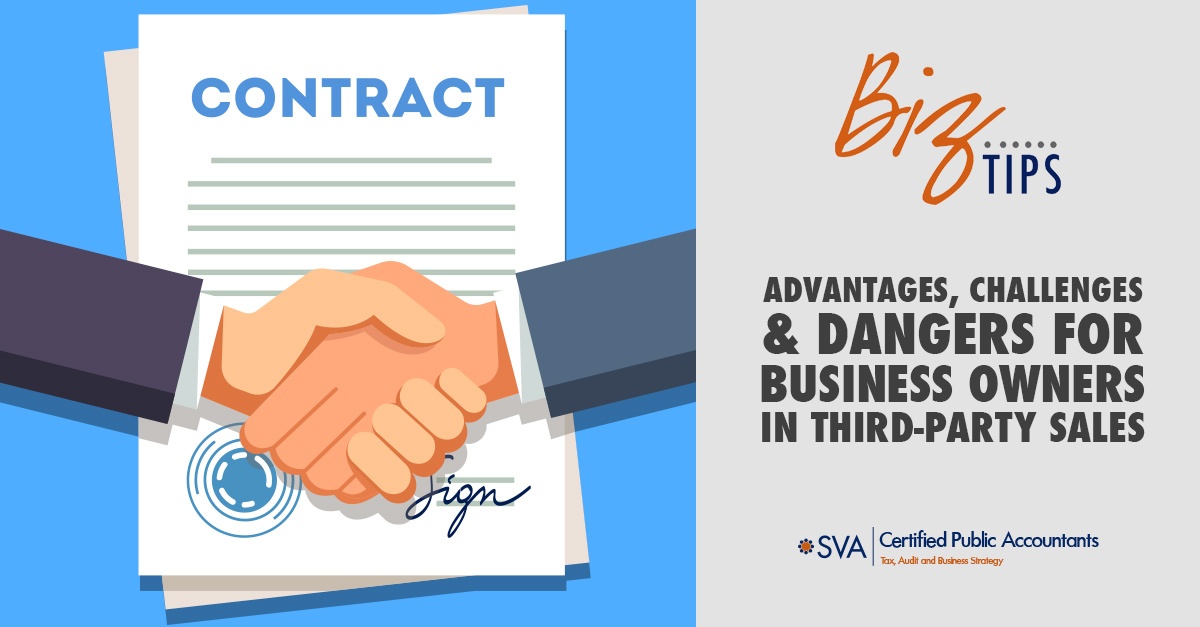For many owners, a sale to a third party is either their favorite or second favorite exit path.
In fact, according to The BEI 2016 Business Owner Survey Report, 59% of business owners were interested in pursuing a sale to an unrelated third party. While this number is staggering compared to the other exit paths business owners initially pursue, it makes sense when considering the obvious advantages of a third-party sale.
The advantages and challenges we’ll discuss exist in the context of the three fundamental goals of all BEI exit plan designs:
- Maximize the amount of money the owner receives.
- Keep the owner in control until he or she receives all monies.
- Minimize the owner’s risk.
(Download Video Transcript)
Financial Security
Advantage
There are three reasons why a third-party sale is advantageous to business owners who want financial security from their exits.
| 1. More Money |
Third-party sales tend to have the highest ceiling for potential payment among all exit paths, especially if a strategic buyer is the purchaser. |
| 2. More Money, More Quickly |
The fundamental advantage of a third-party sale is that business owners receive the bulk of the purchase price at closing, rather than over the course of several years. |
| 3. Relative Ease |
A third-party sale’s deal structure is usually more straightforward than other transfer methods, providing business owners and advisors commit to proper pre-sale planning. |
Challenge
While one of the benefits of a third-party sale is that it typically has the highest ceiling in terms of sale price, there’s a caveat.
In a sale to a third party, owners lose control of their companies at closing. If they do not receive the entire purchase price in cash at closing, they significantly increase their risk of receiving the balance in the form of earn-outs or a secured promissory note that they hold for the balance of the purchase price. This means that the price they get is subject to future company performance after the sale.
The Time Factor
Advantage
Compared to other exit paths, a sale to a third party can be completed relatively quickly, usually within a year.
Challenge
With properly planned third-party sales, there are no disadvantages related to the time factor. However, that’s only if an owner is personally and emotionally prepared for a future without the business. Without a proper plan, business owners can find themselves falling prey to the rolling five-year plan or spend more time than they want in the business.
The Time Margin
Advantage
Recall that the time margin is the period in which business owners develop interests outside the business while still receiving income from it. You might infer that the relative quickness of a third-party sale prevents owners from capitalizing on the time margin, but that’s not always the case. With proper pre-sale planning, business owners often find that their time margins increase.
Challenge
One of the downsides of a third-party sale is that owners need to have their time margins set before they dive in (recall that time margin is the period in which business owners develop interests outside the business while still receiving income from it).
If an owner has no time margin now, this path won’t create it until he or she has sold the company. Without an established time margin—which results from proper pre-sale planning—business owners can face seller’s remorse, which can destroy a sale.
Tax Consequences
Advantage
Typically, a business owner’s Advisor Team can structure a sale so that the proceeds from the sale-of-ownership interest are subject only to long-term capital gains taxes, which can save business owners substantial amounts in tax dollars.
Challenge
Third-party sales can create severe tax consequences for the unprepared owner. For example, many owners start their companies as C corporations and never convert them to S corporations. In these cases, owners of C corporations who sell their ownership shares can be taxed twice on the final sale price (one tax at the corporate level and a second tax at the personal level). The combined tax rate can exceed 50%.
Values-Based Goals
Advantage
There are two advantages to a third-party sale in terms of a business owner’s values-based goals.
| 1. Avoids Business-Family Issues |
Owners can treat all children equally by (eventually) providing them equal amounts of cash. This advantage appeals to owners who would rather not worry about which child will run the business and which children will receive other assets (or not) to compensate for not owning the business. |
| 2. Benefits Key Employees |
Owners can choose to provide a cash benefit to selected employees to reward them for their contributions to the company. Key employees may enjoy more opportunities for advancement, salary, perks, and benefits working for the new (and larger) owner. |
Challenge
Regardless of what buyers say, a sale to a third party runs the risk of a radical change in the personality or culture of a business. Buyers don’t buy businesses unless they are convinced that they can make changes to improve them, which can lead to extreme changes in the business’ culture. For owners who place a premium on maintaining culture, third-party sales tend to be risky enterprises.
Successor
Advantage
With a properly planned third-party sale, it can be possible to limit the possible new owners to a select few who share the seller’s culture and values.
Challenge
Similar to values-based goals, third-party sales often limit a business owner’s choice of successor. If the best offer comes from a buyer who will change the business in ways that the selling owner cannot live with, the selling owner needs to know how to respond in ways that won’t damage the sale prospect or the business’ value.
Proper pre-sale planning helps business owners do this, but too often, owners only realize this after they’ve damaged their sale prospects.
Addressing Challenges in Third-Party Sales
You probably noticed that most of the challenges inherent to a third-party sale result from improper pre-sale planning. That’s why SVA has tools and resources to minimize or eliminate the challenges in sales to third parties and are part of the pre-sale planning and execution process that focuses on achieving all of an owner’s goals and aspirations.
Remember that the actions required to mitigate the challenges described here may take years. If owners push their third-party sale planning until when they are ready to exit, there's little advisors can do for them to assure that their businesses are ready for their exits.
Because most owners would like to exit within five years, advisors must speak with owners about the advantages and disadvantages of this exit path immediately.
© 2018 Business Enterprise Institute, Inc.

